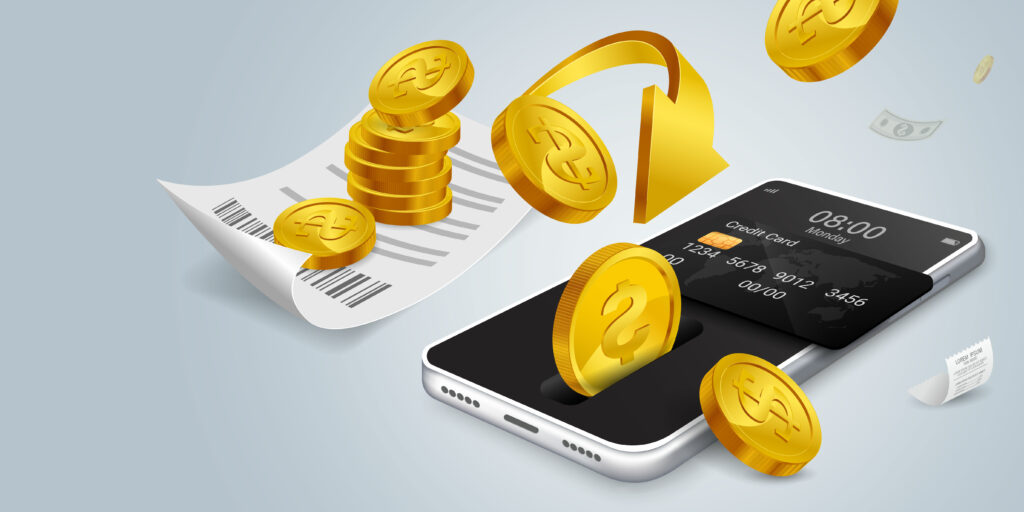In the rapidly evolving landscape of the digital age, the way we spend money has transformed significantly. With the advent of online shopping, digital wallets, and fintech innovations, consumers face endless opportunities—and challenges—when managing their finances.
This article explores effective spending strategies tailored for the modern consumer, aiming to enhance financial health and maximize the benefits of digital spending tools. Read on and learn how to spend wisely and improve your finances.
Embrace budgeting apps
The first step towards effective spending in a digital age is leveraging technology to keep track of your finances. Budgeting apps have become indispensable tools for monitoring expenses, setting savings goals, and identifying unnecessary expenditures.
These apps can sync with your bank accounts and credit cards, providing real-time insights into your spending habits. By analyzing this data, you can make informed decisions and adjust your budget accordingly, ensuring that you live within your means while still enjoying the conveniences of digital spending.
Optimize online shopping
Online shopping offers convenience, variety, and, often, better prices. However, it can also lead to impulsive buying. To optimize online shopping, always compare prices across different platforms to ensure you get the best deal. Take advantage of cashback offers, discount codes, and loyalty programs. Furthermore, consider using browser extensions that automatically apply the best coupons at checkout or alert you when prices drop for items on your wish list.
Secure your transactions
Digital spending comes with the risk of cyber threats. Protect your financial information using secure passwords, enabling two-factor authentication, and shopping on reputable sites. Be wary of phishing emails and scams that trick you into divulging your financial information. Investing in good cybersecurity software can also safeguard your devices from malicious attacks.
Boost your credit card earnings
To truly capitalize on digital spending, it’s crucial to boost your credit card earnings. Select credit cards that offer rewards or cashback on the purchases you make most often. Credit cards provide additional perks for online shopping, dining, and entertainment. Pay attention to sign-up bonuses, but be mindful of annual fees and interest rates.
By strategically using credit cards for your digital purchases, you can earn significant rewards or cashback, which can offset some of your spending or be reinvested into savings.
Utilize digital wallets and payment apps
Digital wallets and payment apps not only streamline transactions but can also offer additional savings. These platforms often run promotions or partner with merchants to provide discounts and rewards. Moreover, they can help you track spending across different categories, making it easier to stick to your budget. Ensure you’re taking full advantage of these benefits, but always prioritize security by using these apps on protected devices and networks.
Invest in financial education
Lastly, continuous learning is critical to effective spending in a digital age. The digital finance landscape constantly changes, introducing new tools and products regularly. Stay informed about the latest trends in digital spending, understand the risks and benefits of emerging fintech products, and educate yourself on personal finance management. This knowledge will empower you to make smarter spending decisions and take full advantage of the opportunities presented by the digital age.
Bonus tips: How to curb impulsive spending online
Impulsive online shopping can quickly derail your budget and lead to financial strain. In the era of endless digital advertisements and one-click purchases, resisting the temptation to buy spontaneously requires a strategic approach.
Here are some effective strategies to help you avoid impulsive online purchases:
1.Set clear financial goals
Define your short-term and long-term financial goals. Whether saving for a vacation, building an emergency fund, or paying off debt, having clear objectives can help prioritize your spending. When you’re tempted to make an impulsive purchase, remember these goals and consider whether the expense will help or hinder your progress.
2.Implement a waiting period
Before making a purchase, impose a mandatory waiting period on yourself. It could be 24 hours, 48 hours, or even a week. Use this time to consider whether you need the item or it’s just a fleeting desire. Often, the urge to buy impulsively fades with time, saving you from unnecessary expenditure.
3.Unsubscribe from marketing emails
Retailers often email tempting offers and newsletters to lure customers into making purchases. Take control by unsubscribing from these marketing emails. If you’re worried about missing genuine deals, designate a separate email account for shopping-related communications and check it only when you need to purchase.
4.Create a budget and stick to it
Develop a comprehensive budget that includes categories for all your expenses, including a specific allotment for discretionary spending. Knowing you have a set amount to spend on non-essentials can make you more mindful about impulsive purchases. Use budgeting apps to track your spending in real-time and stay within your limits.
5.Use wish list features
Instead of purchasing items immediately, add them to your wish list. Many online stores offer this feature, allowing you to save items you’re interested in without buying them on the spot. Periodically review your wish list to see if you still want those items. This practice can help differentiate between genuine needs and impulsive desires.
6.Limit your payment options
Make it more challenging to complete a purchase by not storing your credit card information on websites and turning off one-click ordering. The additional steps required to enter your payment details can give you valuable time to rethink the necessity of your purchase.
By implementing these strategies, you can curb impulsive online shopping, take control of your finances, and make more deliberate and satisfying purchasing decisions.
Conclusion
Effective spending in a digital age requires a blend of technological savvy, strategic planning, and financial discipline. By embracing budgeting apps, optimizing online shopping, securing transactions, boosting credit card earnings, utilizing digital wallets, and investing in financial education, consumers can confidently navigate the complexities of digital finance. These strategies not only enhance financial health but also ensure that the conveniences of modern spending tools translate into tangible benefits.


